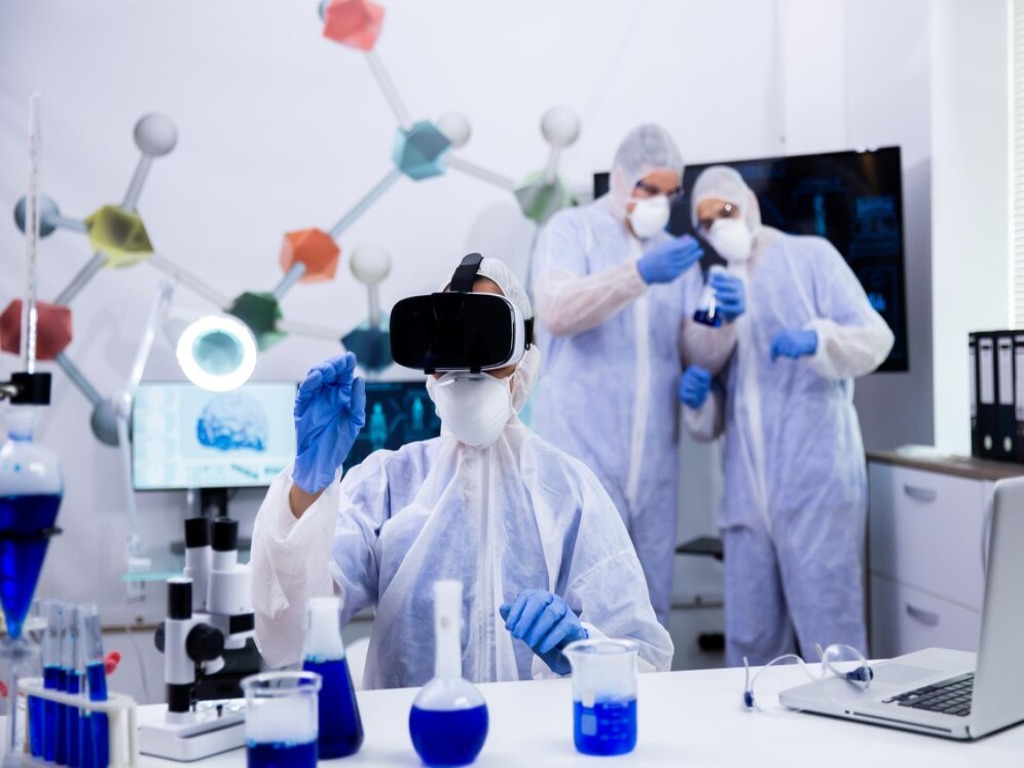

The pharmaceutical industry is evolving rapidly, driven by technological advancements and shifting global health needs. As a leading institution, Indore Institute of Pharmacy, recognized among the Top b pharma college in indore, is at the forefront of adapting to these changes. This article explores the key trends and innovations shaping the future of pharmaceutical education, showcasing how the institute is preparing its students to excel in this dynamic field.
Digital technology is revolutionizing pharmaceutical education, and the institute is integrating these advancements into its curriculum. From virtual reality (VR) simulations that provide immersive learning experiences in drug development and pharmacological processes to artificial intelligence (AI) tools that enhance research capabilities, the institute is leveraging technology to offer cutting-edge education to its students. These technologies not only enhance learning but also prepare students for a workforce increasingly reliant on digital competencies.
As the medical field moves towards more personalized approaches to healthcare, pharmaceutical education is shifting to emphasize personalized medicine. The institute is incorporating genomics, biotechnology, and pharmacogenomics into its programs. By understanding the genetic factors that influence patient responses to drugs, students are prepared to contribute to the development of tailored therapies that improve treatment efficacy and reduce side effects.
The institute is redefining the role of pharmacists in public health through its curriculum. Beyond dispensing medication, its graduates are equipped to participate actively in disease prevention, health promotion, and emergency response. The school emphasizes a broader scope of practice for pharmacists, preparing them to take on roles as health advisors, community health leaders, and policy advocates.
The complexity of modern healthcare requires a collaborative approach. Recognizing this, the institute promotes interdisciplinary education, encouraging students to work alongside peers in nursing, medicine, public health, and healthcare management. This approach fosters a deeper understanding of each profession’s role in patient care and enhances teamwork skills essential for effective healthcare delivery.
With growing concerns about the environmental impact of pharmaceuticals, sustainability has become a critical topic in pharmaceutical education. The institute integrates principles of green chemistry, waste reduction, and lifecycle analysis of drug products into its teaching. This education is vital for developing future pharmacists who can contribute to environmentally responsible pharmaceutical practices.
Clinical experience is crucial in pharmaceutical education. The institute has enhanced its clinical training programs to provide students with real-world healthcare settings experience. This includes internships, community service, and rotations in various healthcare environments. These opportunities help students apply theoretical knowledge in practical settings, a key component of effective learning in pharmacy education.
As global health issues like pandemics and access to medicines continue to dominate healthcare discussions, understanding these challenges is crucial for future pharmacists. The institute offers courses and seminars focused on global health challenges, drug policy, and international healthcare systems. These programs prepare students to work in an increasingly interconnected world.
To stimulate innovation in the pharmaceutical field, the institute encourages entrepreneurship through specialized courses and incubation centers. Students learn about drug development, regulatory affairs, and the business aspects of pharmacy, equipping them to launch startups or lead innovation within established companies.
Given the critical importance of ethics and regulation in pharmacy, the institute places strong emphasis on comprehensive training in these areas. Students become well-versed in global and local pharmaceutical regulations, ethical considerations in drug development, and patient privacy laws. This training ensures that graduates uphold the highest standards of professional practice.
Recognizing that education does not end with a degree, the institute offers lifelong learning programs to its alumni. These include continuing education courses, workshops, and online modules that cover the latest developments in pharmacy practice and research. Such programs are essential for maintaining competency and advancing professional development in a rapidly changing field.
The Institute continues to prioritize the ethical dimensions of pharmaceutical practice. Students receive comprehensive training that goes beyond the standard curriculum to encompass patient-centered care principles, ethical decision-making, and the social responsibilities of pharmacists. This focus ensures that graduates not only serve as healthcare providers but also as patient advocates who prioritize safety and ethical standards in all their professional engagements.
Recognizing the increasing importance of mental health, the Institute integrates mental health education into its pharmacy curriculum. This includes understanding psychotropic medications, counseling techniques, and strategies for supporting patients with mental health issues. By equipping students with knowledge and skills in mental health care, the institute prepares them to contribute meaningfully to a holistic approach to health that includes mental well-being.
As new therapeutic classes and innovative drug delivery systems continue to emerge, the institute keeps its curriculum at the cutting edge by incorporating these advancements into its courses. This not only includes the study of biopharmaceuticals and gene therapy but also advancements in nanotechnology and personalized drug delivery systems. These courses prepare students to work effectively in modern pharmaceutical environments and to drive innovation in pharmacotherapy.
Community pharmacies play a critical role in healthcare systems, often serving as the first point of contact for health advice. The Institute strengthens its training in community pharmacy practices to ensure graduates are prepared to manage pharmacies effectively, provide accurate health advice, and enhance the quality of community health. This includes management skills, customer service, and an in-depth understanding of over-the-counter medications.
The future of pharmaceutical education demands adaptability, innovative thinking, and a broad skill set, all of which are fostered at Indore Institute of Pharmacy, which is recognized among the Top D Pharma College in Indore. By staying at the forefront of educational trends and technological advancements, the institute ensures its graduates are not just prepared for the current landscape but are also pioneers of change in the pharmacy field. As the role of pharmacists expands and evolves, the institute continues to set benchmarks in pharmaceutical education, making significant contributions to healthcare globally.